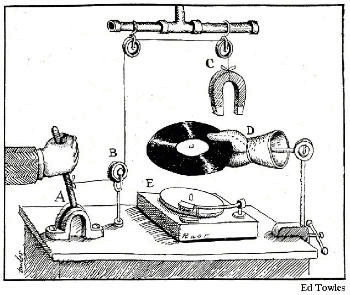I've got a few, but please allow me to vent some of the Abortion-related ones. This might make it easier to focus on the euthanasia issues, though I'm expecting some overlap.
One of the recurrent themes I'm picking up in reading the pro-abortion essays--ok, I'd better stop and explain my terminology. While I prefer Pro-Life as a description, it is true that both this and Pro-Choice are
rhetorical names. They try to project the positive about their position. Plus there's an unspoken feeling on both sides that
abortion names an unpleasant topic and so is best left unmentioned. For the purposes of philosophy I'll restrict myself to pro-abortion to designate those arguing for fewer or no legal restrictions on abortions; and anti-abortion for those favouring greater or almost complete legal restrictions on abortion.
Back to the original point: there's a recurrent theme in pro-abortion arguments, not part of the argument directly, but alluded to again and again: "We're the compassionate ones!" There may, in fact, be some objective basis for this assertion, though it's initially counter-intuitive to me. "We favour killing the unborn because we're such
feeling people. Not like those cold, heartless anti-abortionists." This is a rhetorical device and, no doubt, reflects the beliefs of many, even most, pro-abortionists when dealing with their opponents.
The occasion of this complaint, however, is a remark by
Warren in her essay, when forced to confront the reality that her argument, to be successful, must also include infanticide:
Throughout history, most societies--from those that lived by gathering and hunting to the highly civilized Chinese, Japanese, Greeks, and Romans--have permitted infanticide...regarding it as a necessary evil. [emphasis added]
Wikipedia limits itself to saying
many, rather than
most, societies permitted infanticide. So the "everybody did it" element of the premise is suspect. But move on to the emphasized section: I have no knowledge of history to speak of, and certainly none of the practice of infanticide amongst
civilized Chinese, Japanese, and Greeks. But I have certainly heard of
pater familias amongst the pagan Romans. And so I'm bound to ask: what sources indicate the the Romans (or any of the other civilizations cited) found infanticide
a necessary evil? Consider
this:
A letter from a Roman citizen to his wife, dating from 1 BC, demonstrates the casual nature with which infanticide was often viewed:
"Know that I am still in Alexandria. [...] I ask and beg you to take good care of our baby son, and as soon as I received payment I shall send it up to you. If you are delivered [before I come home], if it is a boy, keep it, if a girl, discard it." – Naphtali Lewis, Life in Egypt Under Roman Rule.[4].
In some periods of Roman history it was traditional in practice for a newborn to be brought to the pater familias, the family patriarch, who would then decide whether the child was to be kept and raised, or left to death by exposure. The Twelve Tables of Roman law obliged him to put to death a child that was visibly deformed.

It's interesting to note that the major monotheistic religions (Judaism, Christianity, and Islam) all reject infanticide explicitly. That's one reason for Warren to reach back to the pagan past for her
civilized examplars. Current examples of legalized infanticide are not presented by Warren, monotheistic or otherwise. And the
gendercide going on in India and China currently is happening primarily in the hinterlands, amongst the uneducated and
least civilized. But what of the
civilized Romans?

This phrase ("
regarding it as a necessary evil") seems to me to be a rhetorical phrase that attempts to paint the ancients as both wise (so we'll be persuaded to follow their example) and compassionate (so we can be assured that they were people like us). The evidence for this
regret is a little thin on the ground, however. A civilization, such as the Romans, that used
crucifixion for non-Romans (always preceded by a
scourging that defies
description), found entertainment in convicts being killed by wild animals (
damnatio ad bestias), and that
mandated the exposure of
defective newborns, doesn't strike me as one that found infanticide as the least bit evil, though certainly necessary.
Of course, I'm open to persuasion to the contrary if evidence is produced.


 At what point does the state of ignorance end or the manifestation of wickedness begin within each individual who comes to abhor anything considered Pro-life? When or how does one cross-over from a distorted sense of altruistic compassion into the realm of the wicked?
At what point does the state of ignorance end or the manifestation of wickedness begin within each individual who comes to abhor anything considered Pro-life? When or how does one cross-over from a distorted sense of altruistic compassion into the realm of the wicked? 


















